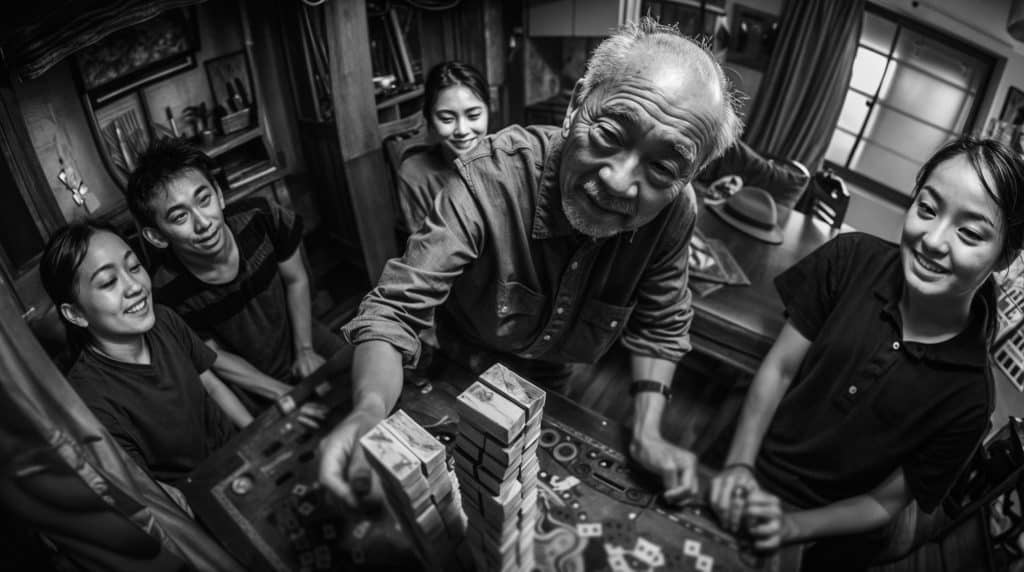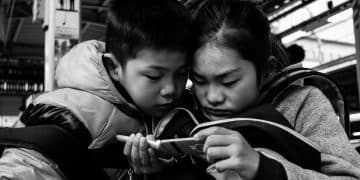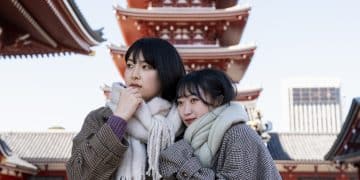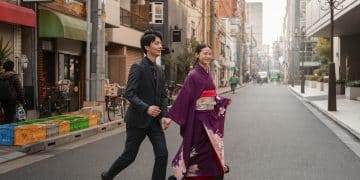10 Most Emotional Doramas Based on True Stories

🎬 Real Lives That Touched Millions
Discover the 10 most emotional Japanese and Korean doramas based on true stories. Real-life tales of love, loss, and courage that continue to inspire audiences across generations.
🌸 When Real Life Inspires the Screen
Not all doramas are fiction. Some of the most powerful ones come from real stories — accounts of ordinary people who faced extraordinary circumstances.
Whether it’s a young woman battling illness, a forgotten artist, or an unsung hero, these dramas remind us that the most touching narratives often come from life itself.
Doramas inspired by true events combine emotional storytelling with historical or biographical depth, creating timeless works that bridge cultures and generations.
Let’s explore the 10 most emotional doramas based on true stories that continue to move hearts around the world
🇯🇵 1. 1 Litre of Tears (Ichi Rittoru no Namida) – An Emotional Journey of Strength and Hope
Among all Japanese doramas, 1 Litre of Tears stands out as one of the most emotional and inspiring stories ever told.
Based on the real diary of Aya Kito, a teenage girl diagnosed with a rare degenerative disease called spinocerebellar ataxia, this series captures her fight to live with grace and dignity even as her body slowly betrays her.
What makes this dorama so deeply emotional is Aya’s unwavering optimism. Through her handwritten words, she expresses gratitude for simple things — the sound of rain, a shared smile, a friend’s visit — even when she knows her time is limited. Her diary, later published and loved across Japan, became a national symbol of courage.
The drama adaptation beautifully portrays her family’s devotion, especially her mother’s quiet strength and her siblings’ compassion. Each scene is filled with subtle emotions — not exaggerated, but genuinely human — which makes the pain and hope feel even more real.
It’s not just a story about illness; it’s about living fully, loving deeply, and finding light in the darkest moments. That’s why 1 Litre of Tears remains one of the most emotional doramas ever produced — a timeless lesson in perseverance and human spirit.
Themes: acceptance, resilience, family love, gratitude.
Lesson: Even when the body weakens, the emotional strength of the soul continues to shine
🇰🇷 2. The Hymn of Death (사의 찬미) – An Emotional Love Story Bound by Fate

The Hymn of Death is one of the most emotional and tragic doramas ever created, blending history, art, and love in a story that still moves audiences today.
Inspired by the real lives of Yun Sim-deok, Korea’s first female soprano, and Kim Woo-jin, a young playwright, this drama transports viewers to the 1920s — a time when Korea was under Japanese colonial rule, and love was both a rebellion and a sacrifice.
Their relationship blossoms through music and poetry, a shared language of souls who long for freedom. Yet their love is doomed from the start — society, class, and duty stand in the way of their happiness. The dorama captures the emotional tension between passion and pain, showing two people torn between following their hearts and obeying the expectations of a rigid world.
Yun Sim-deok’s real song, The Hymn of Death, recorded in 1926, became more than a melody — it was an emotional anthem of longing and despair, echoing the sorrow of a generation trapped between dreams and reality.
Visually, the series is hauntingly beautiful: soft lighting, period costumes, and lingering silences convey emotions that words cannot express. It’s not just a romance — it’s a story about art as survival, love as defiance, and music as memory.
For anyone who appreciates emotional doramas with historical depth, The Hymn of Death is a masterpiece that reminds us that even in the darkest times, love and creativity can shine brighter than fear.
Themes: forbidden love, artistic passion, societal constraint, tragedy.
Lesson: True passion often blooms in the darkest times, and its emotional echo can transcend generations.
🇯🇵 3. Asa ga Kita (あさが来た) – An Emotional Tale of Empowerment and Change
Asa ga Kita is one of Japan’s most emotional and empowering historical doramas, inspired by the true story of Asa Hirooka, a visionary woman who rose to prominence during the transformative Meiji Restoration era. At a time when women were expected to remain silent and confined to domestic roles, Asa dared to dream beyond tradition.
The dorama beautifully portrays her emotional journey from a curious young girl to one of Japan’s first successful female entrepreneurs. She not only builds a financial empire but also becomes a passionate advocate for education and equality, founding institutions that give other women the opportunity to learn and grow.
What makes this series so deeply emotional is not just Asa’s success, but the sacrifices behind it — the moments of doubt, the resistance she faces from men in power, and the loneliness that often accompanies trailblazers. Yet, her optimism and kindness never fade. Her emotional resilience reflects the quiet strength of countless women who changed history not through rebellion, but through perseverance and intelligence.
Visually, Asa ga Kita captures Japan’s modernization — the shift from kimonos to Western suits, from candlelight to electricity — symbolizing the emotional and cultural transformation of an entire nation. Asa stands at the heart of this evolution: graceful, determined, and ahead of her time.
This emotional dorama resonates with viewers today because it mirrors ongoing struggles for gender equality and leadership. It reminds us that progress begins when someone dares to believe in themselves, even when society says otherwise.
Themes: empowerment, education, leadership, perseverance.
Lesson: Breaking barriers begins with believing in your own worth — and true emotional strength is found in courage, compassion, and conviction
🇰🇷 4. Move to Heaven (무브 투 헤븐) – An Emotional Reflection on Life, Death, and Healing

Move to Heaven is not just a drama — it is one of the most emotional and heartfelt Korean doramas ever created. Inspired by real-life trauma-cleaning services in South Korea, the series offers a tender, thought-provoking look at what we leave behind when we go.
The story follows Han Geu-ru, a young man with Asperger’s syndrome, and his uncle Cho Sang-gu, an ex-convict who reluctantly becomes his guardian. Together, they run a business called Move to Heaven, specializing in sorting through the belongings of those who have passed away. But what they truly organize are the emotional fragments of lives once lived — letters never sent, memories never shared, and regrets never spoken.
Each episode unfolds like a short story about love, loss, and reconciliation. A widower’s final letter to his wife, a forgotten veteran’s medals, a child’s drawing — all become emotional windows into human lives that were overlooked or forgotten. Through these discoveries, both Geu-ru and Sang-gu begin to heal their own wounds, forming a bond that grows stronger with every goodbye.
What makes Move to Heaven so deeply emotional is its quietness. There is no melodrama, only sincerity. The camera lingers on the smallest gestures — a hand brushing dust from an old photo, a hesitant smile through tears — making the viewer reflect on their own connections and losses.
The dorama doesn’t portray death as an ending but as a continuation of love through memory. It teaches that every life, no matter how ordinary, has meaning — and that remembering someone is the purest form of love.
Emotionally, it is both heartbreaking and healing. It’s the kind of story that makes you cry, then breathe deeply, feeling grateful for the people still beside you. Move to Heaven is a reminder that closure isn’t about forgetting — it’s about understanding, forgiving, and feeling alive again.
Themes: grief, healing, family bonds, compassion, remembrance.
Lesson: Every goodbye tells an emotional story — and every story teaches us to live better, love deeper, and cherish every fleeting moment
🇯🇵 5. The Emperor’s Cook (天皇の料理番) – An Emotional Feast of Passion and Perseverance
The Emperor’s Cook is one of the most emotional and inspiring Japanese doramas ever made, blending art, ambition, and the spirit of dedication into a story that warms both the heart and the soul.
Based on the true story of Tokuzo Akiyama, a restless young man from a small town who eventually becomes the Imperial Chef to the Emperor of Japan, this drama portrays how a simple dream — to cook — can transform into a lifelong pursuit of perfection.
At the start, Tokuzo is impulsive, lazy, and uncertain about his future. But after discovering his love for cooking, he begins an emotional journey of transformation. The dorama follows his years of training in French cuisine, his struggles with failure, and his sacrifices for excellence. Every plate he creates represents not just food, but devotion, humility, and the emotional power of craftsmanship.
What makes The Emperor’s Cook so deeply emotional is how it humanizes ambition. Tokuzo’s path is filled with loneliness, mistakes, and self-doubt, yet every obstacle shapes his character. His emotional growth mirrors Japan’s own modernization during the Meiji and Taisho eras — a nation learning to balance tradition with progress.
The dorama’s cinematography captures the beauty of cooking as art: the sound of knives on wood, the shimmer of sauce under warm light, the quiet pride of serving a perfect dish. Each scene feels like an emotional poem — a celebration of discipline, patience, and purpose.
But beneath the elegance lies a universal truth: mastery is not about talent or fame; it’s about endless emotional dedication to one’s craft. Tokuzo’s story resonates with anyone who has ever struggled to turn passion into purpose, proving that greatness is born not from comfort, but from persistence and heart.
The Emperor’s Cook is ultimately an emotional tribute to those who give their lives to perfecting what they love. It’s a reminder that success without sincerity is empty — and that true fulfillment lies in serving with heart.
Themes: craftsmanship, ambition, perseverance, humility.
Lesson: Mastery is achieved not by talent alone, but by emotional devotion, discipline, and endless effort.
🇰🇷 6. The Light in Your Eyes (눈이 부시게) – An Emotional Reflection on Time, Memory, and Love

The Light in Your Eyes is one of the most emotional Korean doramas ever produced — a masterpiece that blurs the line between fantasy and reality to explore the fragility of life and the meaning of time.
Although it isn’t directly based on a specific person, the series draws inspiration from real emotional experiences of aging, memory loss, and Alzheimer’s disease, making it a story that feels intimately human and heartbreakingly relatable.
At first, we follow Kim Hye-ja, a cheerful young woman who discovers she can manipulate time to help others. She uses her power selflessly — trying to protect loved ones and fix mistakes. But as the story unfolds, viewers realize that what seemed like a supernatural gift is actually a metaphor for dementia. The time travel, the confusion, and the loss of control all represent the emotional reality of a mind slowly fading.
This powerful twist transforms the dorama into an unforgettable experience. What began as a light romantic fantasy becomes an emotional journey through memory, aging, and unconditional love. The viewer is forced to confront the painful truth that time, once lost, can never be recovered — but love remains eternal, even when faces and names disappear.
What makes The Light in Your Eyes so deeply emotional is its quiet simplicity. There are no exaggerated tears — only moments of silence, reflection, and tenderness. The scenes between Hye-ja and her family radiate warmth and melancholy, reminding us that the beauty of life lies not in endless time, but in the fleeting moments we share with others.
The final episodes are pure emotional art — showing how compassion, patience, and remembrance become the bridges between generations. It’s a story that honors aging, family, and the emotional strength of letting go.
For anyone who has ever watched a loved one grow old or struggle with memory, this dorama is both painful and healing. It teaches that even when memories fade, emotional connections never die — they live on in every act of kindness and every whisper of love.
Themes: time, dementia, family, aging, emotional connection.
Lesson: Life’s true beauty lies in its fleeting moments — cherish them, because even when time slips away, the emotional bonds of love remain forever.
al person, this dorama was inspired by true emotional experiences of aging and memory loss. It tells the story of a young woman who manipulates time to save others — only for viewers to realize it symbolizes Alzheimer’s and fading memories.
The emotional twist left millions in tears, making it one of Korea’s most profound portrayals of love, time, and loss.
Themes: time, dementia, family.
Lesson: Life’s beauty lies in fleeting moments — cherish them before they fade.
🇯🇵 7. Hanzawa Naoki (半沢直樹) – An Emotional Battle for Justice in the Corporate World
Hanzawa Naoki is one of Japan’s most powerful and emotionally charged doramas, inspired by real financial scandals and the moral struggles of Japanese bankers during the turbulent 1990s. Far from being just a corporate thriller, it is a story about integrity, resilience, and emotional strength in the face of corruption.
The dorama follows Naoki Hanzawa, a loyal and ambitious banker who becomes the voice of the common worker trapped in Japan’s rigid corporate hierarchy. When he is wronged by his superiors, Hanzawa doesn’t surrender — instead, he fights back with intelligence, strategy, and unwavering conviction. His legendary catchphrase, “Yarikaesu! — Double payback!”, became a national symbol of resistance and moral courage.
What makes Hanzawa Naoki so emotional is not only the intensity of his battles but the humanity behind them. Each confrontation represents more than revenge — it’s about fairness, loyalty, and the emotional weight of standing alone against a corrupt system. Hanzawa’s determination resonates deeply with Japanese audiences who have experienced the pressures of corporate life, hierarchy, and silent endurance.
The drama captures the emotional complexity of integrity in a world where success often comes at the cost of ethics. It shows that justice isn’t simply about winning — it’s about keeping one’s soul unbroken, even when the world demands compromise.
Cinematically, Hanzawa Naoki combines sharp dialogue, tension-filled boardroom scenes, and moments of quiet reflection that expose the emotional toll of fighting for what is right. The dorama balances intellect with empathy, ambition with morality — creating an unforgettable portrayal of Japan’s work culture and its emotional undercurrents.
Beyond its gripping storyline, the series became a cultural phenomenon because it touched something universal: the emotional need to be seen, respected, and valued in the workplace. It’s a call to courage — not just for bankers, but for anyone who has ever faced injustice and refused to bow down.
Themes: justice, moral courage, perseverance, emotional integrity.
Lesson: Standing up for what’s right may cost you everything — but silence costs even more. True emotional strength lies in fighting for fairness, no matter the consequence
🇰🇷 8. Hope: The Story of a Child (소원) – An Emotional Journey from Pain to Healing

Hope: The Story of a Child is one of the most emotional and deeply human Korean doramas ever created, based on a true event that shocked an entire nation. The story centers on a young girl who survives a horrific assault — but rather than focusing on the crime itself, the series shifts the lens toward healing, love, and resilience.
This emotional approach is what makes Hope so powerful. It doesn’t sensationalize tragedy; it transforms it into a story of courage and compassion. Through the girl’s recovery and her family’s devotion, viewers witness how hope can bloom even in the darkest soil. The dorama becomes a moving portrait of how broken hearts can mend — slowly, painfully, but genuinely.
The emotional depth of the story lies in the parents’ journey. They are overwhelmed by guilt and anger but channel those emotions into protecting their daughter’s innocence and rebuilding trust. The small gestures — a father learning to smile again, a mother holding her child’s hand with trembling strength — create moments that linger in the heart long after the episode ends.
What elevates Hope beyond tragedy is its emphasis on humanity. The dorama becomes a reflection of real families who endure unspeakable pain yet find the emotional power to keep going. It quietly challenges viewers to think about justice, empathy, and the strength required to forgive without forgetting.
The acting is raw and heartbreaking, with minimal dialogue but immense emotional impact. The silences between the characters often speak louder than words — moments filled with fear, tenderness, and the silent prayer that life can still be beautiful.
Watching Hope is not easy, but it is profoundly important. It teaches us that survival is not the end of the story — healing is. It reminds us that emotional resilience is born not from denial, but from facing pain with love and patience.
This emotional dorama leaves a lasting impression because it celebrates the triumph of the human spirit. It’s about the power of family, community, and compassion to turn suffering into strength and tragedy into transformation.
Themes: trauma, family love, healing, justice, emotional resilience.
Lesson: Hope can survive even in the darkest places — and emotional healing begins when love becomes stronger than pain.
🇯🇵 9. Rookies (ルーキーズ) – An Emotional Story of Redemption, Teamwork, and Second Chances
Rookies is one of the most emotional and uplifting Japanese doramas of all time, loosely based on the real-life experiences of a passionate high school coach who used baseball to give troubled students a second chance at life. It’s more than a sports story — it’s a heartfelt exploration of redemption, mentorship, and emotional growth.
The dorama follows Koichi Kawato, a young and idealistic teacher who arrives at a school known for its violent and delinquent students. Most of them have given up on their futures, labeled as failures by society. But Kawato sees something others can’t — the potential hidden beneath their anger and pain. With patience and determination, he decides to rebuild the school’s banned baseball team, giving his students both purpose and hope.
What makes Rookies so emotionally powerful is the bond that forms between teacher and students. Each character carries emotional scars — broken homes, loss, neglect — and through the team, they rediscover trust, respect, and self-worth. Their transformation feels real because it mirrors true rehabilitation programs in Japan, where sports and mentorship are often used to guide youth back to a meaningful path.
The emotional highlight of the series is not the victories on the field, but the quiet moments off it: a student apologizing for his past, a teammate defending another, or Kawato’s unwavering belief that “No dream is too small if your heart is in it.” Those moments are what make this dorama resonate deeply — it’s about the emotional redemption of lost youth through the simple yet profound act of being believed in.
Visually, Rookies captures the raw energy of youth — sweaty practices under the sun, tearful hugs after
defeats, and the shared laughter of teammates who have finally found belonging. Every scene bursts with passion and sincerity, making it impossible not to cheer for these boys as they rebuild their dreams from the ground up.
At its heart, Rookies is a story about emotional connection — how one teacher’s faith can reignite a student’s hope, and how teamwork can heal what loneliness once broke. It’s a reminder that no one is beyond saving, and that believing in someone is the first step toward changing their life.
This emotional dorama continues to inspire viewers because it captures universal values: forgiveness, perseverance, and the belief that every person deserves a second chance.
Themes: redemption, mentorship, teamwork, emotional growth, perseverance.
Lesson: Believing in someone can change their life forever — and sometimes, that belief also transforms your own
🇰🇷 10. Reply 1988 (응답하라 1988) – An Emotional Celebration of Family, Friendship, and Everyday Life

Among all Korean doramas, Reply 1988 stands as one of the most emotional, nostalgic, and universally beloved stories ever told. Though it isn’t based on one specific real-life event, every moment feels so authentic that viewers can’t help but see reflections of their own childhood and family within it.
Set in a small neighborhood in Seoul during the late 1980s, this emotional masterpiece captures a simpler time — when families shared one television, friends gathered outside until sunset, and neighbors truly felt like extended family. It’s a heartfelt snapshot of real Korean life, filled with laughter, arguments, warmth, and love that transcends generations.
What makes Reply 1988 so deeply emotional is its honesty. There are no villains, no exaggerated twists — just the raw beauty of growing up. The dorama celebrates ordinary moments: a mother saving leftovers for her kids, a father secretly worrying about his job, or friends teasing each other about first crushes. Yet, through these small, seemingly insignificant details, the show evokes enormous feelings of nostalgia and belonging.
Each episode unfolds like a memory — one that feels both deeply personal and universally relatable. The soundtrack, packed with 1980s Korean pop songs, adds to the emotional depth, instantly transporting viewers back in time. The music doesn’t just set the mood; it awakens memories, the kind you can almost smell and touch — the scent of home-cooked meals, the sound of an old cassette tape, the laughter echoing through a shared alley.
The emotional connection between the five main friends — Deok-sun, Taek, Jung-hwan, Dong-ryong, and Sun-woo — forms the heart of the story. Their friendship grows, stretches, and changes as they navigate adolescence, love, and family struggles. It’s a portrayal so realistic that many viewers say they didn’t just watch Reply 1988 — they lived it.
Beyond the characters, Reply 1988 is also a tribute to parents — to their sacrifices, their quiet love, and their emotional endurance. It reminds us that while youth may fade, family bonds and shared memories are timeless. The dorama’s emotional climax doesn’t come from grand gestures but from gentle realizations: that growing up often means understanding what our parents gave up for us, and that home isn’t just a place — it’s the people who make us feel safe.
This emotional dorama became a cultural touchstone across Asia and beyond because it captures something universal: the bittersweet passage of time. It invites us to reflect on our own childhoods, on friendships that shaped us, and on the comfort of knowing that even as the world changes, love remains constant.
In the end, Reply 1988 is not just a story about the past — it’s a reminder to cherish the present. It teaches that the most profound emotions often come from the simplest moments: shared laughter, late-night conversations, and the irreplaceable warmth of home.
Themes: nostalgia, friendship, family bonds, emotional connection, growing up.
Lesson: Sometimes, the most emotional stories are the ones that remind us of home — of where we came from, who we loved, and the memories that made us who we are.
💫 Why Real-Life Doramas Touch Our Hearts

What makes true-story doramas so impactful is their authentic emotion.
They don’t rely on fantasy or special effects — instead, they show the raw beauty of being human.
From Aya Kito’s tears to Geu-ru’s quiet empathy, these characters reflect our deepest fears and hopes. They remind us that pain can become purpose and that love, in all its forms, is what truly defines us.
🌍 Cultural Significance: When Real Stories Become Global Lessons
Real-life doramas act as cultural ambassadors, helping international viewers understand the values that define Japan and Korea — perseverance (ganbaru), community, respect, and emotional honesty.
They show how societies handle grief, ambition, and hope differently, yet share the same universal emotions. Watching these stories connects us across borders — reminding us that the heart speaks a universal language.
❤️ Conclusion: Real Lives, Real Lessons
The best doramas based on true stories go beyond entertainment.
They teach us about resilience, compassion, and meaning.
Each one carries a message worth remembering:
-
1 Litre of Tears teaches courage through illness.
-
Move to Heaven reveals beauty in loss.
-
Asa ga Kita proves one woman can change history.
-
The Hymn of Death transforms sorrow into art.
These stories continue to inspire because they are not just watched — they are felt.
And long after the credits roll, their lessons stay with us.





